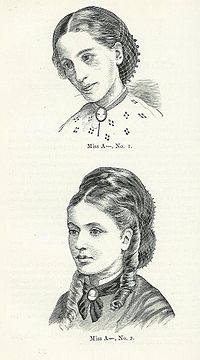
Photo from wikipedia
ABSTRACT Background Hypertension is a lifelong disease that requires a healthy lifestyle and medical treatment. Patients’ views about the causes of hypertension play a role in guiding their self-care to… Click to show full abstract
ABSTRACT Background Hypertension is a lifelong disease that requires a healthy lifestyle and medical treatment. Patients’ views about the causes of hypertension play a role in guiding their self-care to regulate hypertension. Aims This study aimed to examine the internal structure underlying the causal beliefs about hypertension in Korean patients and their influence on self-care intention and medication compliance. Methods A cross-sectional study was conducted using a convenience sample of 145 patients. Causal beliefs about hypertension were assessed using a modified Illness Perception Questionnaire-Revised. The internal structure of causal beliefs about hypertension was extracted with an exploratory factor analysis of SPSS 22.0. The influence of causal beliefs on self-care intention and medication compliance was tested using multiple linear regression and logistic regression analyses. Findings Causal beliefs about hypertension were structured into four dimensions: psychological, fate-related, risk, and habitual factors. Attributing the causes of hypertension to risk factors (e.g., smoking, alcohol) and fate-related factors (e.g., fate, accident) was a significant predictor of lower self-care intention and poorer medication compliance, respectively. Discussion Patients’ causal beliefs about hypertension were either relevant or irrelevant to medical facts. Special attention is needed for patients who believe that risky behaviour or supernatural power causes hypertension. Understanding patients’ beliefs about hypertension should be highlighted as a primary step to develop nursing strategies corresponding to patients’ recognition about hypertension. Conclusion Careful assessment of the causal beliefs about hypertension is essential to develop nursing interventions to maintain and promote active self-care.
Journal Title: Collegian
Year Published: 2020
Link to full text (if available)
Share on Social Media: Sign Up to like & get
recommendations!